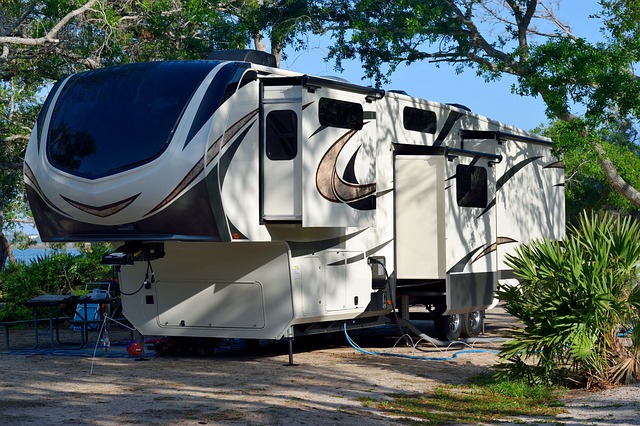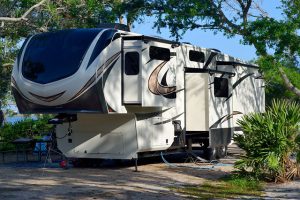

One of the great things about RVing is that you can have the conveniences from home while you’re on the road. You can stay warm at night, see to read when it’s dark, and wake to a nice, fresh-brewed cup of coffee in the morning…all thanks to your RV electrical system.
It’s important to understand your RV electrical systems somewhat before you head out. Knowing how your RV electrical supply operates can help you troubleshoot problems, or more importantly, avoid them in the first place! Here’s a little bit of information to help you understand your RV electrical system and how it works.
RV Battery Systems
For starters, your RV has three batteries. One is a 12-volt DC automotive system under the hood, and is what powers your RV when you drive it (like your car battery). One is a 12-volt DC coach system, commonly called the “house batteries,” and the last one is a 120-volt AC coach system.
The house batteries run smaller appliances inside your rig like the water pump and the lights. They’re often – but not always – charged when the RV is running, and they also charge when you hook up to power. The 120-volt AC battery runs larger appliances like the air conditioner and coffee maker, and it gets its power from an external RV electrical hookup or a generator.
RV Electrical Hook Up
Your RV will come with either a 30-amp or a 50-amp plug, depending on the size of your rig, so you can connect to external RV electrical power. The greater the power your RV can handle, the more appliances you can run inside. Because 30-amp plugs have a three-pronged plug and 50-amp plugs have four prongs, you may want RV electrical adapters. 50-amp power isn’t always available at campsites, so you’ll want to be able to convert your plug at the RV electrical box. If you do that, just remember you won’t be able to run as many of your appliances because you’ll be operating with less power.
There are a few things to keep in mind when you plug in your RV electrical system at a campground. First, make sure every electronic device in your rig is powered off. Actually, it’s best to unplug them completely. This way, if there’s a problem with the RV electrical connection, you won’t fry all your electronics. You can also invest in a polarity tester, which allows you to test the campground’s power before you plug in so you can be sure the wiring is good. Polarity testers are around $40 on Amazon, but the investment may save you more if it prevents melting your computer! You may also want to consider a surge protector.
Know Your Appliances
Not everything you use draws the same power. Know which of your devices use just a little power, and which are electricity hogs. For the most part, anything that generates heat or makes things cold draws a lot of power and you can’t run too many of them at once, especially on 30 amps of power. Also, kitchen appliances use more electricity that most other devices. The microwave, coffee maker, and toaster are all big power draws, as are the air conditioner, and the power required for a slide out. TVs and radios use relatively little power.
RV Electrical Maintenance
Check your RV electrical wiring before a trip. Make sure your batteries’ connection points are secure, nothing is damaged, and everything is clean and not corroded. Check your RV electrical plugs to be sure they’re in good shape and there is no fraying or wear. Also, it’s a good idea to know where your RV electrical panels are in your rig. If your appliance shuts off abruptly, the first thing to do is check to see if a circuit tripped or a fuse blew.
RV Electrical Safety
Always use extreme caution when you’re working with electricity. Turn off power at the source before working on anything, treat all electrical wires as though they’re live, and use tools with non-conducting handles. If you don’t have experience working with electricity, or you’re not comfortable doing it, have your RV electrical service done by someone who specializes in RV electrical repair – it’s just not worth risking your vehicle or your life.
This post may contain affiliate links.






